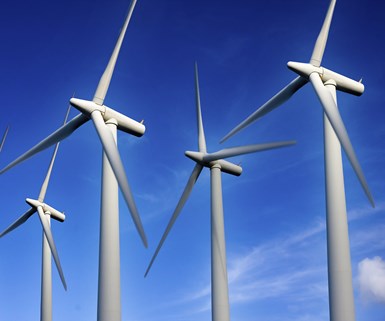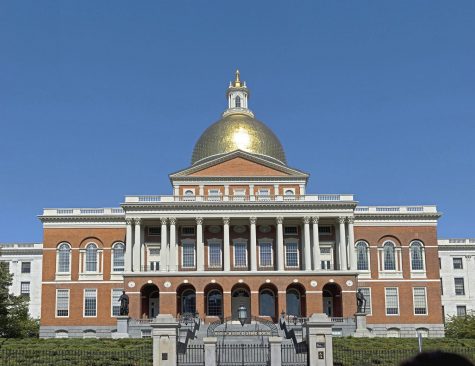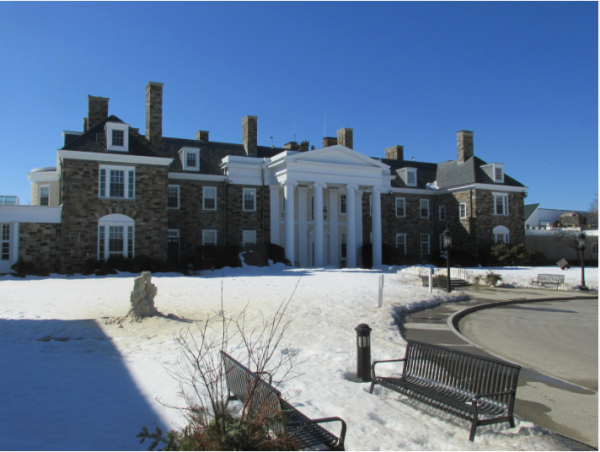The Road to Net-Zero Greenhouse Gas Emissions
In January 2021, the Massachusetts Legislature passed an important climate bill that would transform Massachusetts into an environmentally friendly state by 2050. There was hardly any opposition in the House and Senate for the “Next-Generation Roadmap for Massachusetts Climate Policy,” which passed with a 142-17 vote. However, Governor Baker did not sign the bill before the legislative session expired, thereby creating a “pocket veto” of the bill.
The bill is premised on the goal of net-zero emissions by no later than 2050 and consists of built-in benchmarks to keep the state on track. According to the Massachusetts Greenhouse Gas Inventory, most (65%) of the state’s greenhouse gas emissions come from the burning of fossil fuels by cars, trucks, homes, and offices. Twenty percent comes from power plants that fuel our everyday living. Because these carbon dioxide emissions are the primary greenhouse gas responsible for global warming, lowering them is the single most important thing that states and countries can do to address climate change. Without tackling climate action, Massachusetts will continue to experience the impacts of global warming: high temperatures, rising sea levels, and increasing amounts of precipitation and storms.
This bill would not only make changes for Massachusetts industries at the state level, but it would also change the everyday lives of Massachusetts residents.
 Under the “Next-Generation Roadmap for Massachusetts Climate Policy,” energy would be converted primarily to more renewable sources, such as solar energy and wind energy. To help this, the plans call for an additional 2400 megawatts of offshore wind. Big fossil fuel companies would be urged by the state to convert to a more environmentally friendly form of energy. This includes appliance companies – hopefully leading to electric appliances in all Massachusetts homes at some point. Yes, electric appliances are more expensive upfront, but over time, they are much cheaper. According to WBUR writer Miriam Wasser, the nonprofit Environment Massachusetts says that “[a]dopting this measure could save Massachusetts residents $145 million in electricity bills a year by 2025.” This initiative leads to another hefty environmental goal for Massachusetts: one million homes on electric heat instead of fossil fuel energy by 2050.
Under the “Next-Generation Roadmap for Massachusetts Climate Policy,” energy would be converted primarily to more renewable sources, such as solar energy and wind energy. To help this, the plans call for an additional 2400 megawatts of offshore wind. Big fossil fuel companies would be urged by the state to convert to a more environmentally friendly form of energy. This includes appliance companies – hopefully leading to electric appliances in all Massachusetts homes at some point. Yes, electric appliances are more expensive upfront, but over time, they are much cheaper. According to WBUR writer Miriam Wasser, the nonprofit Environment Massachusetts says that “[a]dopting this measure could save Massachusetts residents $145 million in electricity bills a year by 2025.” This initiative leads to another hefty environmental goal for Massachusetts: one million homes on electric heat instead of fossil fuel energy by 2050.
A similar concept mentioned in the bill is the requirement that all new cars sold in-state be electric by 2035. Unfortunately, this wouldn’t necessarily decrease the price of electric vehicles, but it would make the use of them more prevalent throughout the state. With this, there would be a push for added EV charging stations.
Another important issue discussed in this bill is environmental justice, which is the reality that some communities experience disproportionate impacts of pollution compared to other communities. According to State House News reporter Chris Van Buskirk, an environmental justice community must have one of the following criteria: a median annual household income of at least 65% below the state average, 25% of households without mastery of English; or a neighborhood consisting of 25% minorities.
The proposed bill would ensure that environmental justice-designated neighborhoods have access to meaningful decision making regarding projects and the same sustainable options as the rest of the state. In October 2020, Rep. Adrian Madaro (D-MA,) a resident of Boston, specifically fought for the environmental justice communities before the House of Representatives. He said, “Our planet is now facing a reckoning for decades of burning fossil fuels, but the burden of these fumes has been borne by [environmental justice] communities from the beginning.” He specifically recognized the effect on communities near East Boston, which have incredibly high greenhouse gas emissions that correspond with its very high childhood asthma rate. These areas also experienced extreme COVID-19 outbreaks. They deserve to be prioritized, and if the bill became a law, they would be. Likewise, solar energy and other forms of renewable energy would become increasingly accessible to the environmental justice areas, and its distribution would prioritize women and minority-owned businesses with the initiatives for a better environment.
Additionally, the bill would establish a tremendous opportunity for renewable energy jobs, in terms mof increasing training for positions that would help further Massachusetts towards its 2050 goals.
The climate bill would help prevent any future incidents like the gas explosions in Andover, North Andover, and Lawrence. In September 2018, over-pressurized gas lines led to more than 80 gas explosions and 500,000 residents to evacuate. One death and a dozen injuries occurred as a result. Due to fear of an event like this happening in the future, the proposed climate bill would increase fines for gas pipeline issues and improve gas pipeline safety throughout the state.
 This bill would considerably help Massachusetts and promote new ways to achieve its significant climate goals. Enhancing the state’s renewable energy usage and providing targeted support for environmental justice communities would create consistency and fairness.
This bill would considerably help Massachusetts and promote new ways to achieve its significant climate goals. Enhancing the state’s renewable energy usage and providing targeted support for environmental justice communities would create consistency and fairness.
The House and Senate passing this bill in January 2021 was a crucial step in the right direction, but after Governor Baker’s pocket veto, there is still more to be done. Baker agrees with the majority of the bill’s provisions, but he had several concerns after reading through it. For example, he needs to consider the section that would allow cities and towns to renovate their building codes to include a requirement of net-zero emissions on construction projects. This raises concerns for Baker, as he advocates for affordable home construction. Currently, the bill is being refiled and is supposedly going to be presented to him again in the future.
If Massachusetts residents and Governor Baker work together, looking towards the same goals, the state 30 years from now will be exceptionally greener.
Learn more here:
Climate Change Policy in Massachusetts. This state website provides an overview of climate initiatives across all branches of Massachusetts government.
Alternatives for Community and Environment. ACE builds the power of communities of color and low-income communities in Massachusetts to eradicate environmental racism and classism, create healthy, sustainable communities, and achieve environmental justice.
New England Environmental Justice Research Network. This site facilitates collaboration between researchers, lower-income communities and communities of color, and environmental justice advocates.
The Paris Agreement. Learn about this critical agreement to address climate change on an international level. President Biden rejoined the Paris Agreement in January 2021.
Environmental Defense Fund. EDF is a nonprofit organization that addresses climate change, among other issues, here in Massachusetts and internationally.
The Nature Conservancy: TNC is a nonprofit organization that is playing an important role in the fight to reverse global warming and to manage the impacts of climate change.







